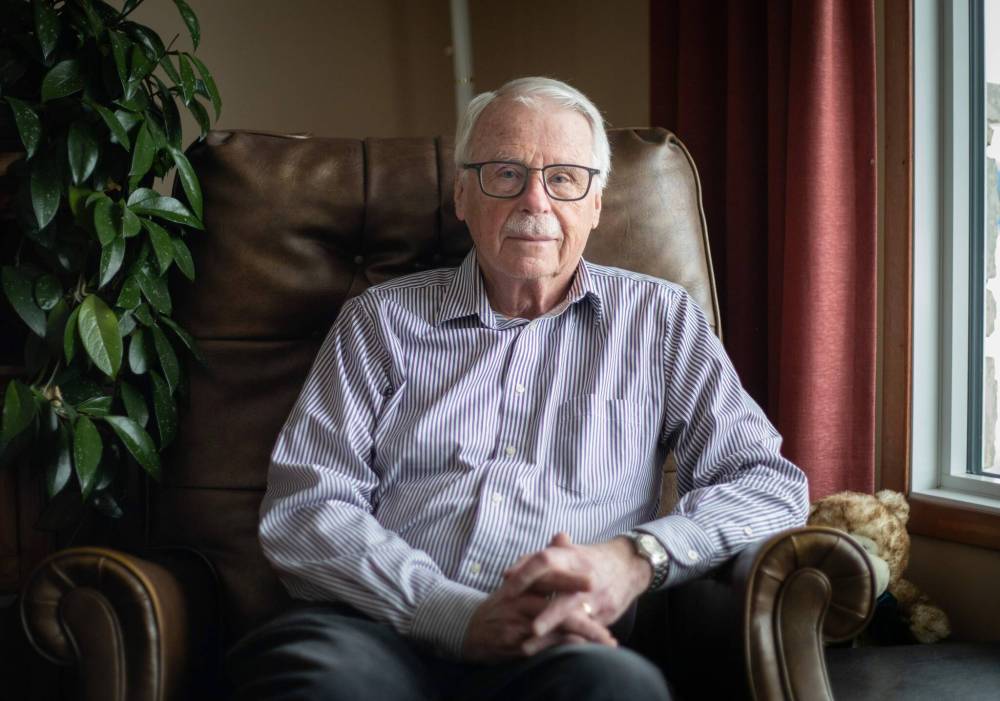Mennonites have more than just history with Ukraine
Advertisement
Read this article for free:
or
Already have an account? Log in here »
To continue reading, please subscribe:
Monthly Digital Subscription
$0 for the first 4 weeks*
- Enjoy unlimited reading on winnipegfreepress.com
- Read the E-Edition, our digital replica newspaper
- Access News Break, our award-winning app
- Play interactive puzzles
*No charge for 4 weeks then price increases to the regular rate of $19.00 plus GST every four weeks. Offer available to new and qualified returning subscribers only. Cancel any time.
Monthly Digital Subscription
$4.75/week*
- Enjoy unlimited reading on winnipegfreepress.com
- Read the E-Edition, our digital replica newspaper
- Access News Break, our award-winning app
- Play interactive puzzles
*Billed as $19 plus GST every four weeks. Cancel any time.
To continue reading, please subscribe:
Add Free Press access to your Brandon Sun subscription for only an additional
$1 for the first 4 weeks*
*Your next subscription payment will increase by $1.00 and you will be charged $16.99 plus GST for four weeks. After four weeks, your payment will increase to $23.99 plus GST every four weeks.
Read unlimited articles for free today:
or
Already have an account? Log in here »
Hey there, time traveller!
This article was published 09/03/2022 (1373 days ago), so information in it may no longer be current.
Fuelled by family memories of life in Ukraine a century ago, Winnipegger Alvin Suderman now oversees thousands of dollars in Canadian aid to feed and house Ukrainians affected by Russia’s invasion.
“We’re operating a soup kitchen much like (Mennonite Central Committee) did 100 years ago,” said Suderman, chairman of the Canadian charity Friends of the Mennonite Centre in Ukraine.
With an annual budget of $300,000, the 20-year-old non-profit supports seniors, students, medical institutions, and schools in Molochansk, Ukraine. It now sends up to $4,000 daily from Canadian donors to buy groceries and medicine for people affected by the war.

Molochansk, which is in the southeastern province of Zaporizhzhia, was founded by Mennonite settlers two centuries ago under the name of Halbstadt.
For about 150 years, what was then known as south Russia, was home to tens of thousands of Mennonites. Most of them immigrated to Canada, the United States and several South American countries from 1874 to the mid-1940s.
Following Ukraine’s independence from the former Soviet Union in 1991, Mennonites from Canada visited their ancestral villages, and later founded the Mennonite Centre to assist needy Ukrainians, said Suderman.
In light of that history, Mennonite Heritage Village in Steinbach is holding a candlelight prayer vigil for Ukraine on March 13. The vigil will take place around a six-metre-high cenotaph constructed in 1985 to honour Mennonites and others who died in Ukraine between 1914 and 1953 due to violence, war, persecution or famine.
“We know there have been atrocities in that land before and they’re going on today. It grieves us and we hope for a better tomorrow,” explained museum executive director Gary Dyck about the reason for the vigil.
Although few Mennonites remain in southern Ukraine, Canadian Mennonites have built connections with Ukrainian researchers and historians in recent decades, said University of Winnipeg history professor Aileen Friesen, who last visited in 2018 and recently cancelled a research trip to Ukrainian archives.
Ukrainian citizens have welcomed Canadian-born Mennonites, offered information about their past and provided access to historical records, many of which are at risk of being destroyed in the war, said Friesen, co-chair of the university’s Centre for Transnational Mennonite Studies.
“They chose to recognize their territory as multi-ethnic and they chose to celebrate the variety of people who lived in their land,” said Friesen, who is concerned about the safety of colleagues in Ukraine.
Another Winnipeg-based Mennonite organization has suspended some of its work to support seniors and children in Zaporizhzhia, but local staff keep in touch with its 200 or so clients, said Louie Sawatzky of Mennonite Benevolent Society, which runs the Mennonite Family Centre in the city of 800,000.
“We’re making calls and bringing food and giving them assurance they’re not forgotten and they’re not alone,” he said.
Sawatzky said many clients have medical issues and financial limitations that prevent them from leaving Ukraine for neighbouring countries.
“We want to be there in some form during this chaos,” said Sawatzky, who has visited Ukraine 20 times in the last two decades.
“It gives them hope, it gives them some stability to hold on to.”
Although most Mennonites who live in Manitoba were born in Canada, their attachment to Ukraine remains strong because they’ve heard stories about the country from their parents and grandparents, said Friesen.
“These are living ties we have to these places. The memories of people we love are seeped into that soil.”
fpcity@freepress.mb.ca
The Free Press is committed to covering faith in Manitoba. If you appreciate that coverage, help us do more! Your contribution of $10, $25 or more will allow us to deepen our reporting about faith in the province. Thanks! BECOME A FAITH JOURNALISM SUPPORTER

Brenda Suderman has been a columnist in the Saturday paper since 2000, first writing about family entertainment, and about faith and religion since 2006.
Our newsroom depends on a growing audience of readers to power our journalism. If you are not a paid reader, please consider becoming a subscriber.
Our newsroom depends on its audience of readers to power our journalism. Thank you for your support.
The Free Press acknowledges the financial support it receives from members of the city’s faith community, which makes our coverage of religion possible.







